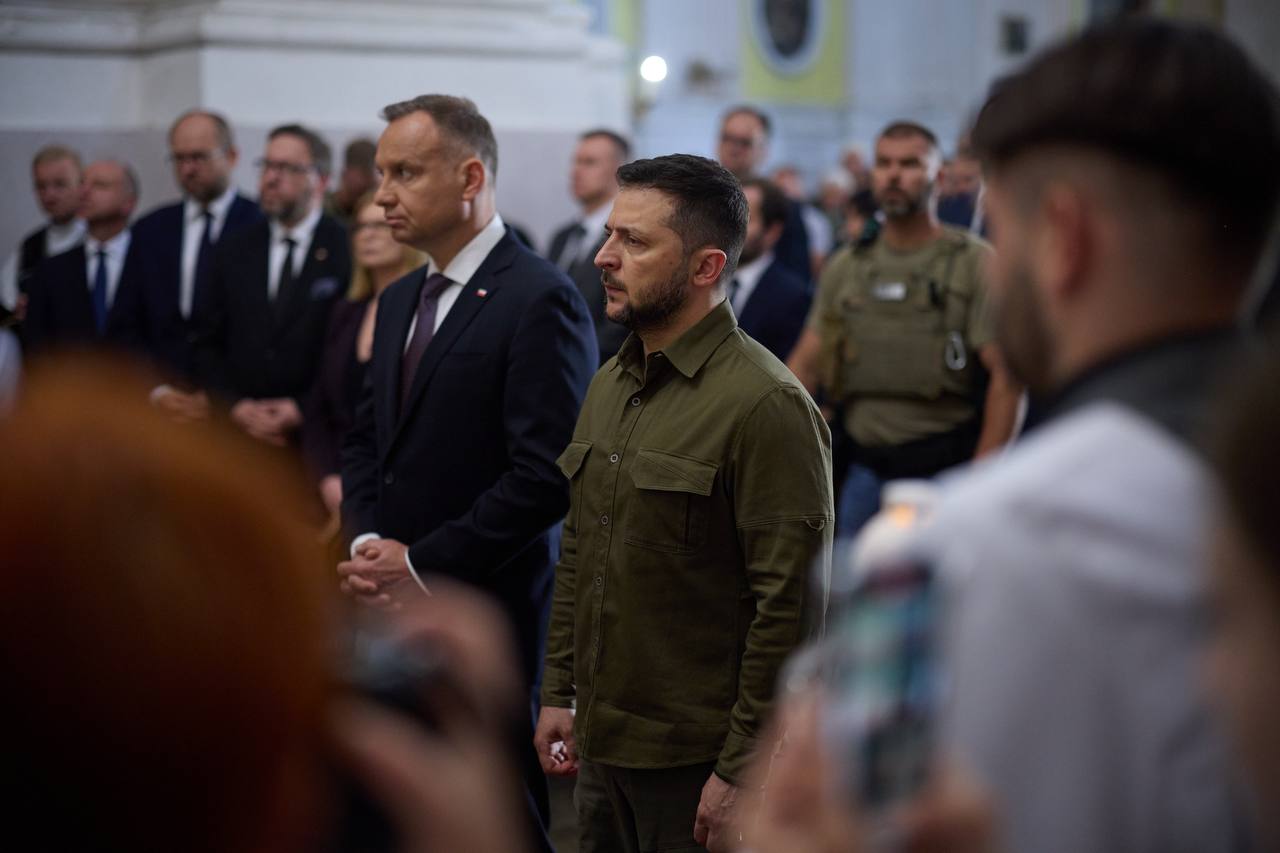FM Sybiha meets Polish president in Warsaw

Foreign Minister Andrii Sybiha met with Polish President Andrzej Duda in Warsaw to discuss Ukraine's defense needs and bilateral relations between the two countries, Sybiha said on Oct. 1.
Sybiha met with a number of Polish and other E.U. officials on Oct. 1 on the sidelines of the Warsaw Security Forum.
"We discussed Ukraine's priority defense needs, further military aid, invitation for Ukraine to join NATO, and our path to EU membership," Sybiha said on X of his meeting with Duda.
"We also identified ways to strengthen our good-neighborly bilateral relations."
The foreign minister's meeting with Duda comes at a time of heightened tensions between Poland and Ukraine.
The 1943 Volyn (Volhynia) massacre is once again at the forefront of Polish-Ukrainain relations, as the lack of resolution over the historic killings continues to surface in modern-day negotiations.
During World War II, members of the Ukrainian Insurgent Army (UPA) massacred tens of thousands of Poles in Nazi-occupied Volyn, a region that used to be part of Poland and is now part of Ukraine. Thousands of Ukrainians were killed in retaliation.
Thus far, reconciliation efforts between Poland and Ukraine have not succeeded.
Polish Foreign Minister Radoslaw Sikorski on Sept. 13 called on the Ukrainian government to resolve the matter, saying it is "a non-political issue that cannot be bargained over." Earlier in July, Polish Defense Minister Wladyslaw Kosiniak-Kamysz said that Ukraine would not be able to join the E.U. until it had settled the Volyn issue.
Duda criticized these remarks, saying that obstructing Ukraine's E.U. accession aligned with Russian President Vladimir Putin's policies.
Sikorski sparked further backlash in Ukraine among the Crimean Tatar community after he said on Sept. 19 that peace talks between Moscow and Kyiv should include "demilitarizing" the Crimean peninsula, which Russia has illegally occupied since 2014.
Sybiha told reporters on the sidelines of the Warsaw Security Forum that Ukraine was ready to work with Poland on "the most difficult" issues.
"We have enough political will and diplomatic talent to solve any issues, including the most difficult ones, including with our closest allies and friends, the Poles," he said in a comment to Radio Free Europe/Radio Liberty (RFE/RL).
"We will be talking about this topic today," he said.
Despite the diplomatic strain between Kyiv and Warsaw, Poland has been one of the strongest supporters of Ukraine since the start of Russia's full-scale invasion in February 2022, providing billions of dollars in military, economic, and humanitarian aid and hosting millions of Ukrainian refugees.














